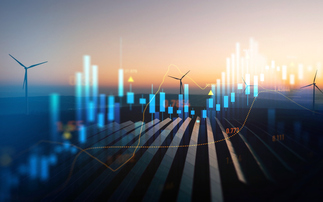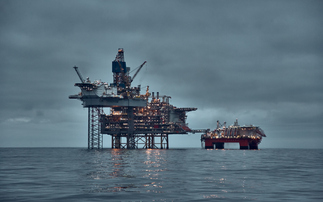But oil giant still expects global carbon emissions to rise 20 per cent by 2035, highlighting need for further climate policy action
Climate scientists are in broad agreement that global carbon emissions need to peak during the 2020s if the world is to remain on a trajectory where it has a reasonable chance of delivering on the Paris Agreement's goal of keeping temperature increases well below 2C.
"The world is starting to make the transition to a lower-carbon energy system, and the COP21 meeting in Paris last December represented a significant step on this journey," BP said in a statement. "But carbon emissions are still projected to be growing, suggesting the need for further policy action. A meaningful global price for carbon is likely to be the most efficient mechanism through which to achieve an even faster transition to a low carbon world."
The report is more optimistic about the potential for a slowdown in emissions over the next 20 years than previous editions, after 2014's version of the outlook predicted emissions would soar 29 per cent by 2035. It also includes a number of alternative scenarios, including one where the transition to a lower carbon world proves faster than expected.
Under the "faster transition" scenario, global carbon emissions peak in 2020 and fall nearly eight per cent by 2035 thanks to a carbon price rising to $100 a tonne, tougher vehicle efficiency standards, and faster than expected progress on energy efficiency and renewable energy.
BP said the scenario would require more ambitious policies than those currently set out in the INDC climate action plans adopted by countries through the Paris Agreement. It also predicted the "faster transition" would still allow for fossil fuels to provide 70 per cent of energy in 2035 with natural gas and oil dominating as the coal industry sees demand fall more than 30 per cent.
"The big winner in the 'faster transition' case is renewables, with an almost six-fold increase in output (nearly nine per cent p.a.) and a 15 per cent share of energy by 2035," the report states. "The rate at which renewables gain share from 2020 to 2035 matches oil's gain over the 15 years of 1908-23 - years that included the Texas oil boom, the discovery of oil in the Middle East, the British Navy switching to oil, and the Model T Ford starting mass motorization."
BP is more optimistic about the prospects for a low carbon transition than it has ever been and over the past few years it has tacitly acknowledged that its past predictions for the clean energy sector have been far too pessimistic. It even reckons a global renewables boom remains a distinct possibility. But perhaps unsurprisingly the oil and gas major still sees an increased role for oil and gas over the next two decades, regardless of whether or not bolder climate policies and more effective clean technologies materialise.
Critics will argue this upbeat outlook for oil and gas continues to underplay the risk posed to BP's business model by rapidly emerging clean technologies and the growing appetite among regulators post-Paris for ambitious climate policies. Advocates of the "carbon bubble" hypothesis will note that the Paris Agreement includes a commitment to review national climate plans in five years' time, further increasing the risk that carbon intensive assets could be left stranded.
Luke Sussams, senior analyst at the Carbon Tracker Initiative, which has pioneered the "carbon bubble" hypothesis said BP's energy outlook failed to reflect the full implications of the Paris Agreement for the fossil fuel industry. "BP's energy outlook to 2035 has changed little over the last year," he said. "It appears to state the COP21 international climate change agreement will make little impact in suppressing future fossil fuel demand, which continues to meet more than 80 per cent of global energy needs."
He also warned the company's "base case" was continuing to underplay the risks faced by the oil industry. "As in previous years, BP's outlook highlights key uncertainties such as lower economic growth or a faster shift to a low-carbon economy. But these considerations do not make it into its base case," he said. "For example, BP foresees global energy demand increasing rapidly off the back of emerging economies of Asia. But, China's economy is slowing faster than anyone thought, lowering energy demand growth. Further, the overall growth narrative in the entire region is changing as concerns grow over the huge debts China amassed to fuel its post-2008 manufacturing boom."
The Paris Agreement may have been noted in the BP boardroom, but the company clearly still feels a lot more action is needed from policy makers if it is to ever deliver on its 2C promise. The firm insisted today that it did not develop plans based solely on its "base case" scenario, but currently that base case suggests the world is heading for dangerous levels of climate change in the coming decades.
This article is part of BusinessGreen's Road to Paris hub, hosted in association with PwC.










